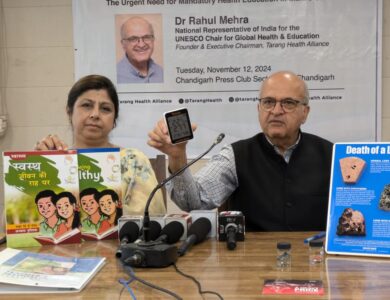Beyond Medications: Exploring the Power of Ancient Practices for Blood Pressure Management

For centuries, civilizations around the world have harnessed the wisdom of tradition to promote health and well-being. In the realm of cardiovascular health, ancient practices like yoga, meditation, and dietary modifications are experiencing a resurgence, not just as complementary therapies, but as potentially powerful tools for managing blood pressure.
Yoga: A Holistic Approach to Stress and Blood Pressure
Yoga, with its blend of physical postures, breathing exercises, and meditation, offers a multi-pronged approach to blood pressure control.
- Stress Reduction: Chronic stress is a major trigger for high blood pressure. Yoga’s ability to quiet the mind and activate the relaxation response through deep breathing and meditation can significantly decrease stress hormone levels, leading to lower blood pressure.
- Improved Circulation: Yoga postures, particularly those that involve stretching and forward bends, can improve blood flow and circulation throughout the body, taking pressure off the cardiovascular system.
- Weight Management: Obesity is a significant risk factor for hypertension. Yoga, along with its stress-reducing and circulation-enhancing effects, can also promote weight management through increased physical activity and mindful eating practices.
Meditation: Cultivating Inner Peace for Cardiovascular Health
Meditation trains the mind to focus inward, promoting inner peace and emotional stability. This can translate into tangible benefits for blood pressure control:
- Reduced Reactivity: Meditation cultivates emotional resilience, making individuals less prone to reactive spikes in blood pressure due to stress or anger.
- Enhanced Self-Awareness: Meditation fosters a deeper understanding of one’s body and mind, enabling individuals to identify early signs of stress or emotional triggers that can elevate blood pressure and take proactive steps to manage them.
- Improved Sleep Quality: Poor sleep is linked to high blood pressure. Meditation’s ability to promote relaxation and improve sleep quality can indirectly contribute to better blood pressure control.
Dietary Modifications: Nourishing the Body for Balanced Blood Pressure
The food we eat plays a crucial role in regulating blood pressure. Traditional dietary wisdom from around the world emphasizes principles that can be adapted for effective blood pressure management:
- DASH Diet: This evidence-based dietary pattern emphasizes fruits, vegetables, whole grains, and low-fat dairy, while limiting saturated and trans fats, red meat, and added sugars – all of which contribute to hypertension.
- Mediterranean Diet: Rich in fruits, vegetables, legumes, whole grains, and healthy fats like olive oil, the Mediterranean diet has been shown to effectively lower blood pressure and improve overall cardiovascular health.
- Ayurvedic Approach: Traditional Ayurvedic principles for hypertension management focus on reducing heat-producing foods like red meat and spicy foods, while incorporating cooling and blood pressure-lowering herbs like basil and cardamom.
Integrating Ancient Practices into Modern Medicine
While ancient practices hold immense potential for blood pressure management, it’s crucial to remember that they are not a replacement for conventional medical care. Individuals with hypertension should always consult their doctor for diagnosis and treatment recommendations. However, incorporating these practices alongside medication can offer a synergistic approach for improved blood pressure control and overall well-being.
Research and Evidence: Building the Scientific Bridge
A growing body of scientific research is validating the efficacy of ancient practices for blood pressure management.
- Studies have shown that yoga can lead to significant reductions in both systolic and diastolic blood pressure, with effects comparable to certain medications.
- Meditation has been demonstrated to lower blood pressure, improve sleep quality, and reduce stress, all of which contribute to cardiovascular health.
- Dietary modifications based on traditional principles like DASH and the Mediterranean diet have been found to be effective in lowering blood pressure and reducing the risk of cardiovascular events.
Unveiling the Gems of Tradition
In a world dominated by modern medicine, revisiting the wisdom of ancient practices offers a unique and valuable perspective on health and well-being. For individuals seeking to manage blood pressure holistically, yoga, meditation, and dietary modifications present a treasure trove of potential. By integrating these practices into a comprehensive approach alongside conventional medical care, we can pave the way for a healthier and more balanced future for all.
Remember, consulting your doctor before starting any new practice, especially if you have pre-existing health conditions, is essential. With a blend of tradition and science, we can unlock the true potential of these ancient practices for empowering individuals to take charge of their blood pressure health and live longer, healthier lives.








